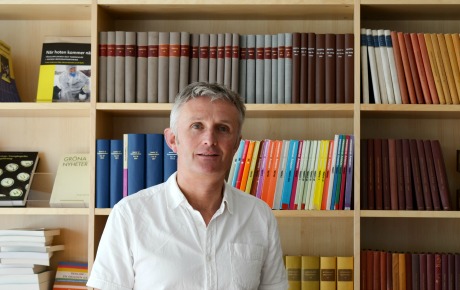The simmering conflict in East Ukraine, which still threatens to become a much larger tragedy, is "a phoney war fuelled by fantasy politics", says the Financial Times (May 21), "with 'terrorists' who don’t look like terrorists confronting 'fascists' who are not fascist".
But in the propaganda war between both sides, the belief among ordinary Russians that the Kyiv government is fascist has far greater social force than the knee-jerk response from Ukraine's new leaders.
War propaganda does not need to be based on fact to be effective, but Moscow's propagandists have skillfully connected real but disparate events to convince Russians that barbarians have taken power in Ukraine.
When 48 opponents of Kyiv died in Odessa amid street battles on May 2 - many of them during a fire in a building where they had taken refuge - their deaths were swiftly branded "the new Khatyn", in reference to one of the darkest Nazi crimes of World War II.
Russian media and politicians now routinely refer to Khatyn whenever they mention the Odessa tragedy, using it to re-inforce a powerful narrative of anti-fascist struggle in east Ukraine.
Khatyn was a village near Minsk in Belarus where in March 1943 Nazis shut the entire population in a shed, covered it in straw and set light to it; 149 people died. The incident became a symbol of the mass killings of Slavs by Nazis during the war.
The Khatyn memorial complex today keeps alive the memory of the 185 Belorussian villages that saw people burned alive like this. At 30 second intervals a bell rings, representing the rate at which Belarussians were killed during the war.
Moreover, the perpetrators of the Khatyn massacre included Ukrainian nationalists, part of the notorious Schutzmannschaft Battalion 118.
The Russian media have seized on this historical event and relentlessly linked it to the Odessa tragedy.
For example, the headlines of the Vesti television news bulletin on May 3 declared: "21st-century Khatyn" - dozens "burnt alive" - "all they wanted was to hold a referendum" - "police stood idle" - Ukraine MP "jubilant" at this "mass burning of residents of southeast".
On May 21, official state TV channel Rossiya showed a 45-minute film which portrayed in graphic detail atrocities committed by Ukrainian nationalists during World War II and suggested that today's nationalists in Ukraine were conducting a similar campaign. "The ideological descendants of those who killed people in Khatyn burnt over 100 people in [Odessa]," the narrator claimed.
This propaganda was particularly powerful in the run-up to the May 9 victory celebrations in Moscow, the annual parade when Russia marks its victory over Nazi Germany and the huge sacrifices it made during the war.
The details of what really happened in Odessa on May 2 are still unclear - Russia has rejected the Ukrainian official findings and is demanding a new investigation. Certainly the majority of victims were opponents of Kyiv and many were trapped when fire broke out - most likely started by a Molotov cocktail thrown from outside - in the building where they had taken refuge from street battles that had raged between the two sides for several hours. Some of those who tried to escape were brutally beaten up.
The new administration in Odessa, appointed just days after the tragedy, is conciliatory towards its opponents. It remains to be seen whether it will succeed in re-uniting its deeply divided citizenry.
However, it is highly inflammatory to claim that the May 2 tragedy was a repeat of the massacre in Khatyn by a Nazi army 71 years ago.
Per Anders Rudling of Lund University has detailed the Kremlin's cynical approach to the Khatyn massacre during the Soviet period. Russia's new leadership, and its supporters in the Russian media, shows no lesser cynicism in its propaganda surrounding the Odessa events.


























MEST KOMMENTERAT
SENASTE KOMMENTARERNA
Om Var Grupp 8 en feministisk organisation?
Om #bildskolan 21: Att äta Den Andre
Om #bildskolan 21: Att äta Den Andre
Om Porr handlar om betalda övergrepp
Om Nobels fredspris till kampanj för att avskaffa kärnvapen
Om Feministiskt perspektiv öppnar arkivet och startar på nytt!
Om Rödgrönt ointresse för fred och nedrustning borde oroa många
Om Var inte målet att vi skulle jobba mindre?
Om Feministiskt perspektiv öppnar arkivet och startar på nytt!
Om Feministiskt perspektiv öppnar arkivet och startar på nytt!
MEST LÄST